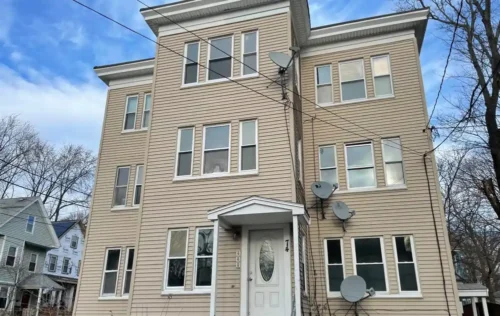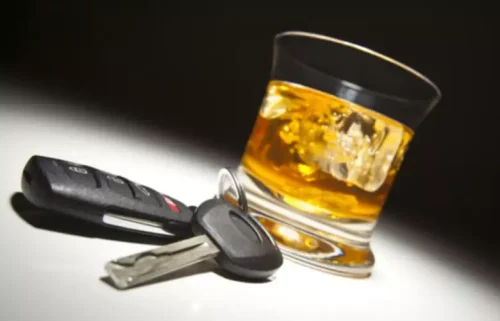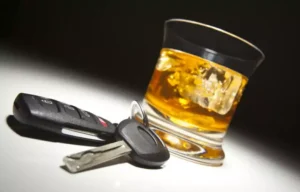
Addiction Resource does not favor or support any specific recovery center, nor do we claim to ensure the quality, validity, or effectiveness of any particular treatment center. No one should assume the information provided on Addiction Resource as authoritative and should always defer to the advice and care provided by a medical doctor. This process involves identifying the positive qualities and skills that members of the family possess, such as good communication skills, empathy, or problem-solving abilities. By leveraging these strengths, families can create a supportive environment that promotes healthy coping strategies and reduces triggers for relapse.
- Our team does their best for our readers to help them stay informed about vital healthcare decisions.
- A relapse prevention plan, often crafted in the safe confines of a treatment setting, is a strategic blueprint for those embarking on the new yet promising journey of recovery.
- Programs like Recovery Unplugged can assist individuals in rebounding from relapse and working toward long-term recovery.
- This routine can help you keep your mind clear, work off stress and tension, and improve your self-confidence.
Step 1: Identify your personal goals in recovery and motivations for positive changes.
These statistics can help you process just how common drug relapse is and how drug addiction is a chronic but curable condition that requires prolonged treatment, just like any other chronic disorder. One example of how this approach has worked in practice comes from a study focused on families affected by substance abuse. The researchers found that when families utilized their strengths, they were better able to identify warning signs of relapse and implement strategies for preventing it from occurring. Avoiding relapses is vital because addiction is a continuous disease that requires ongoing management throughout life. As individuals continue along the path of recovery, there may be times where they feel tempted; it’s important to have measures in place to prevent them from sliding back into old habits. Learning how to make a relapse prevention plan and going through the process of creating a relapse prevention plan could be the difference between longer periods of sobriety and repeated relapse.

When to use these Relapse Prevention Plan templates?
If they’re upset about giving in to temptation, this can lead them to rethink ways to cope with similar situations in the future. If they feel defeated, as they’ll never be able to stop using drugs or alcohol, they may be more likely to abandon sobriety and return to addiction. Having a clear-cut plan gives your patient a sense of control and helps them take an active role in their recovery.
Step One: Download the template

Getting enough sleep and eating healthy can aid in setting up a strong foundation to build from. Being physically healthy can help you to have a clearer mind and feel less stressed as well as increase self-confidence. What specific things will be the biggest challenge for you, and what can you do to manage them? Come up with relaxation techniques, stress-management ideas, and coping strategies, and include these in your plan as a reference for you to look back at.
- Consider any potential scenarios, thoughts, or feelings that might trigger a relapse.
- This relapse prevention plan template is intended to be filled out by a patient with their Behavioral Health Care Manager in the months prior to completing an episode of Collaborative Care.
- Recognizing these warning signs early on can help prevent full-blown relapse and encourage individuals to seek help before it’s too late.
- Routines build structure and stability, grounding individuals in good habits while providing them with more opportunities for success than failure.
- Creating and implementing a comprehensive relapse prevention plan is crucial for maintaining a recovery plan and preventing a return to substance use.
- It can also encourage them to think about how to respond when such situations arise.
Patients are encouraged to review this list when they need motivation or experience triggers. Some common causes of drug relapse include stress, continued exposure to people or places connected to addictive behavior, and negative emotions. Being near the object of your addiction, such as alcohol, can lead to an alcohol relapse relapse prevention plan and even happy moments like celebrations where the substance of addiction is served, such as alcohol-containing cocktails.
- Relapse is a decline in health after temporary recovery – or in the case of addiction, a return to drug or alcohol use after a period of abstinence.
- They offer a safe and confidential space to explore your thoughts, feelings, and behaviors, providing guidance and support throughout your journey.
- Our science-backed approach boasts 95% of patients reporting no withdrawal symptoms at 7 days.
- Because of this worksheets open-ended nature, we suggest using it as a prompt for conversation in groups.
Ben created the video blog A String Of Hope in 2019 to share hope and positivity about addiction and recovery. Ben is personally in recovery and has been creating content for drug rehabs for over 10 years. Recognizing early warning signs isn’t always easy but having some rare information about it could help you give it a try. Some common early warning signs include changes in sleep patterns or eating habits, increased irritability or impatience, or sudden changes in mood or behavior. By understanding what to look for, individuals are better equipped to respond proactively and prevent a relapse.
Embrace each step, knowing that every effort you make contributes to your lasting sobriety. Use the worksheets and templates provided to create a solid foundation for your relapse prevention plan. Reach out to your support network and professional resources whenever needed.If you or a loved one is struggling with addiction, the Boca Recovery Center is here to help. Our team of experienced professionals is dedicated to providing comprehensive care tailored to your unique needs.

Develop Accountability Strategies
Accountability and progress monitoring are key components of a successful relapse prevention plan. There are many strategies for tracking progress, learning from setbacks, and fine-tuning the relapse prevention plan as needed to ensure continued success in recovery. Attending support groups regularly and securing the contact information of a sober sponsor are recommended practices for those participating in peer support groups. These connections can provide invaluable support, advice, and encouragement during challenging times, further strengthening the recovery process and preventing relapse.
- Click on the state you are interested in, and you’ll get a list of the best centers in the area, along with their levels of care, working hours, and contact information.
- Creating a relapse prevention plan proves beneficial for long-term success in recovery, taking into account that relapse is generally considered a three-part process.
- Take care to clearly outline and write this down in your recidivism prevention plan.
- It would also help to consider additional factors like nutrition and exercise habits as they play an essential role in recovery.
- The Relapse Prevention Plan worksheet provides a bare-bones structure for creating such a plan.
Triggers and Potential Challenges
This plan should be written down and reviewed regularly as one passes through the various stages of recovery. Addiction affects not only the individual struggling with substance use disorder but also their loved ones. A family-centered approach to creating a relapse prevention plan involves everyone in the process and helps establish a support system.
This includes creating an atmosphere that promotes sobriety rather than addiction, where the loved one feels secure, positive, and hopeful. It involves establishing a safe space where the person in recovery can be heard and understood, without judgment or criticism. Setting SMART Goals for Successful Prevention helps individuals prepare themselves for treatment challenges while setting targets that align with their values and preferences. Creating a personalized relapse prevention plan with the help of a professional is essential to prevent relapse successfully. The plan should be revisited regularly to update strategies based on success rates. Within the framework of a relapse prevention plan, individuals identify potential triggers—those circumstances, emotions, or situations that could tempt them back towards substance use.
